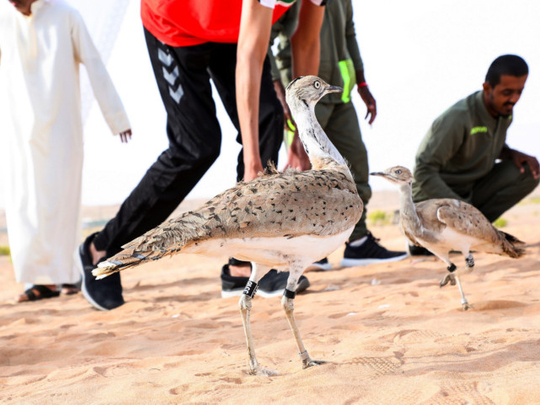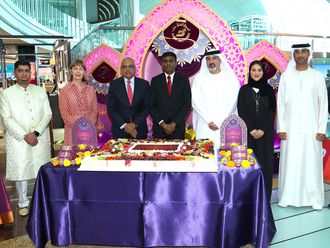
Abu Dhabi: A joint UAE-Israel research project will now study resident populations of Asian Houbara bustard in Israel.
The project will be conducted by the International Fund for Houbara Conservation (IFHC), an Abu Dhabi Government focussed on houbara conservation, and the Israel Nature and Heritage Foundation (INHF).
IFHC conservation experts with decades of scientific experience will work jointly with INHF scientists to survey and study the remnant resident population of Houbara bustard in Israel. The objective is to furnish accurate and updated data on its status and better understand its ecology and behaviour. This will include population distribution and density, breeding and survival rates, habitat quality and movement through data tracking. In addition, the project will study the genetic structure of the population to assess if it differs from other populations across the range, as recent studies indicate that the Houbara in Israel may have a local genetic adaptation. From such research, the entities will develop future conservation measures.
‘Conserving species for future generations’
“Abu Dhabi has led the way in houbara conservation and has unrivalled expertise in relation to the species. Cooperation with INHF sits perfectly within IFHC’s objectives to continually further our understanding of the ecology of the houbara and work with international partners to enhance the conservation of the species. Real science allows us to take real, impactful action to conserve the species for future generations,” said Majid Ali Al Mansouri, IFHC managing director.
“INHF congratulates the hard work of our joint scientists to develop this project to increase our knowledge of both the Houbara and its habitat within Israel. Such knowledge will enable us to better preserve this vulnerable species,” said Major General Matan Vilnai, INHF representative.
Developing a masterplan
Israel is home to the Asian Houbara, mainly in the Negev desert. INFH protects and conserves Israel’s nature, landscape and heritage sites in coordination with the Israel Nature and Parks Authority (INPA), and is developing a masterplan for wildlife conservation in Northern and Central Negev, where the Houbara is a key species.
Globally, IFHC is leading efforts to rebalance wild houbara populations across its range of countries through its successful breeding and release programme. Its efforts have so far bred more than 636,000 houbara and used 486,000-plus birds for conservation actions.








